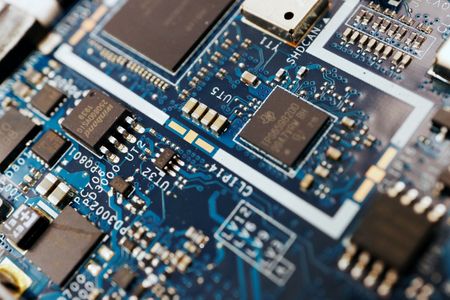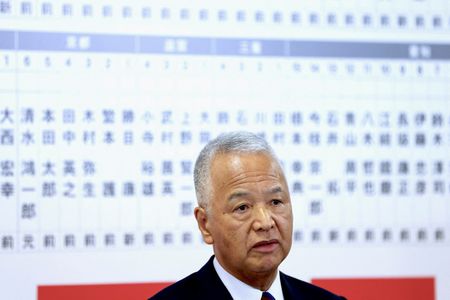By Kiyoshi Takenaka and Tim Kelly
TOKYO (Reuters) – Japan may opt for milder restrictions on chip production machinery sales in China than those implemented by the United States even though they agree on export curbs, an influential Japanese ruling party lawmaker told Reuters on Wednesday.
Japan last month agreed with the Netherlands and the United States to halt exports of equipment that China could use to manufacture advanced chips, bringing Tokyo and Amsterdam in line with sweeping restrictions announced by U.S. President Joe Biden’s administration in October.
“The United States is being strict, but there is a question of whether we have to exactly match that. What we do share is a recognition of the concern over the equipment,” said Akira Amari, a former Liberal Democratic Party minister of economy trade and industry.
The U.S. wants to hobble Beijing’s bid to dominate global chip production and stop it acquiring semiconductors that could enhance its military power.
Any difference in the separate restrictions that Tokyo, Washington and the Netherlands implement, could be a political headache for Biden if it makes U.S. equipment less competitive than those of its rivals.
SEMI, an industry group representing 2,500 members in the semiconductor and electronics manufacturing supply chain, this month also warned that export controls on China would not be effective unless U.S. allies adopt curbs in line with the United States.
Amari said he had been briefed by the Japanese government on the deal, which only the United states has so far publicly acknowledged.
He declined to give details, but said specifics of the agreement, including what machinery would be subject to restrictions, had yet to be hammered out in talks.
“Governments and companies concerned with the issue will have to dig into it, and find where the line needs to be drawn,” said Amari.
(Reporting by Kiyoshi Takenaka, Tim Kelly and Mayu Sakoda; Editing by Bernadette Baum)


